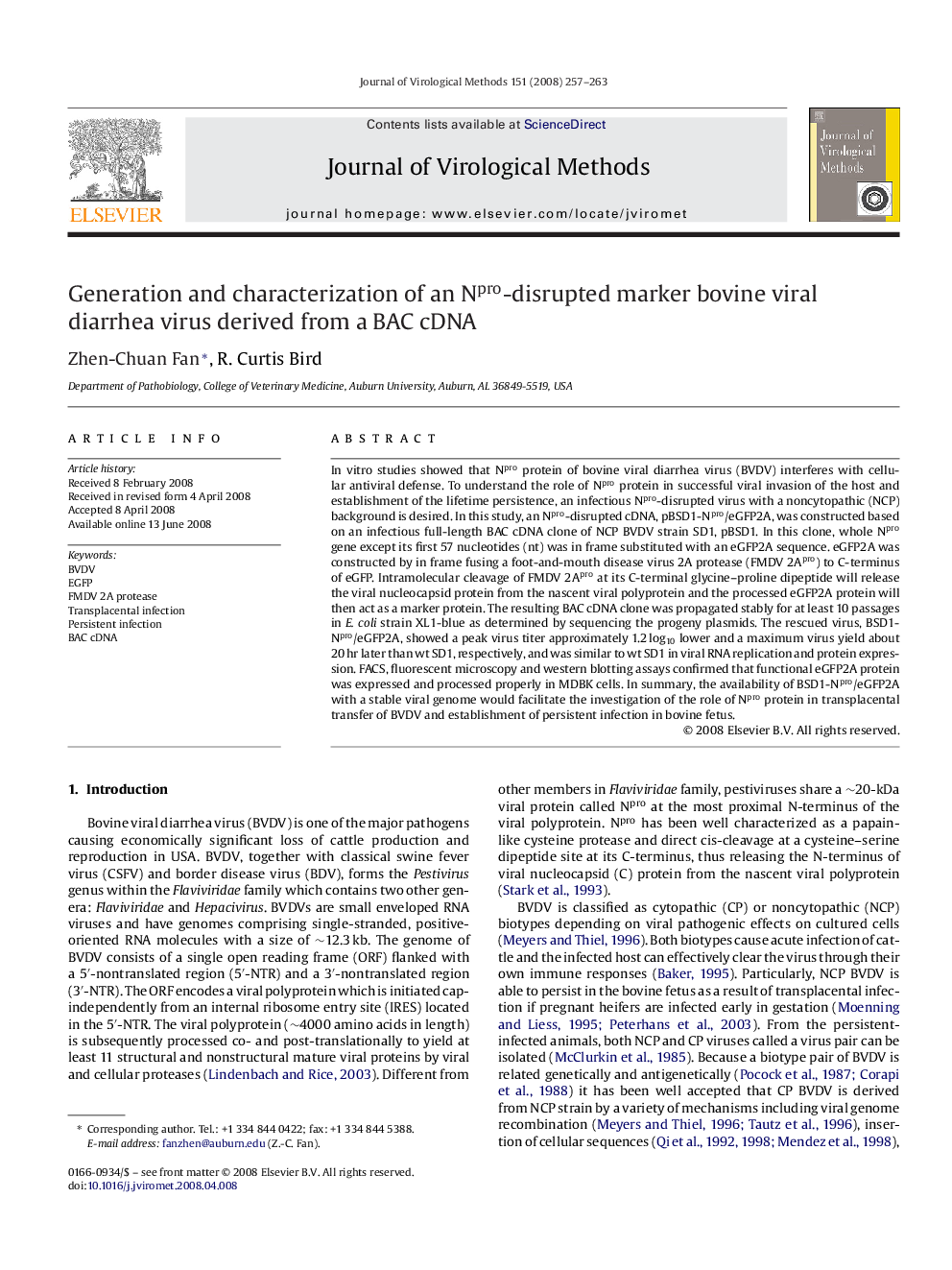| Article ID | Journal | Published Year | Pages | File Type |
|---|---|---|---|---|
| 3407558 | Journal of Virological Methods | 2008 | 7 Pages |
In vitro studies showed that Npro protein of bovine viral diarrhea virus (BVDV) interferes with cellular antiviral defense. To understand the role of Npro protein in successful viral invasion of the host and establishment of the lifetime persistence, an infectious Npro-disrupted virus with a noncytopathic (NCP) background is desired. In this study, an Npro-disrupted cDNA, pBSD1-Npro/eGFP2A, was constructed based on an infectious full-length BAC cDNA clone of NCP BVDV strain SD1, pBSD1. In this clone, whole Npro gene except its first 57 nucleotides (nt) was in frame substituted with an eGFP2A sequence. eGFP2A was constructed by in frame fusing a foot-and-mouth disease virus 2A protease (FMDV 2Apro) to C-terminus of eGFP. Intramolecular cleavage of FMDV 2Apro at its C-terminal glycine–proline dipeptide will release the viral nucleocapsid protein from the nascent viral polyprotein and the processed eGFP2A protein will then act as a marker protein. The resulting BAC cDNA clone was propagated stably for at least 10 passages in E. coli strain XL1-blue as determined by sequencing the progeny plasmids. The rescued virus, BSD1-Npro/eGFP2A, showed a peak virus titer approximately 1.2 log10 lower and a maximum virus yield about 20 hr later than wt SD1, respectively, and was similar to wt SD1 in viral RNA replication and protein expression. FACS, fluorescent microscopy and western blotting assays confirmed that functional eGFP2A protein was expressed and processed properly in MDBK cells. In summary, the availability of BSD1-Npro/eGFP2A with a stable viral genome would facilitate the investigation of the role of Npro protein in transplacental transfer of BVDV and establishment of persistent infection in bovine fetus.
